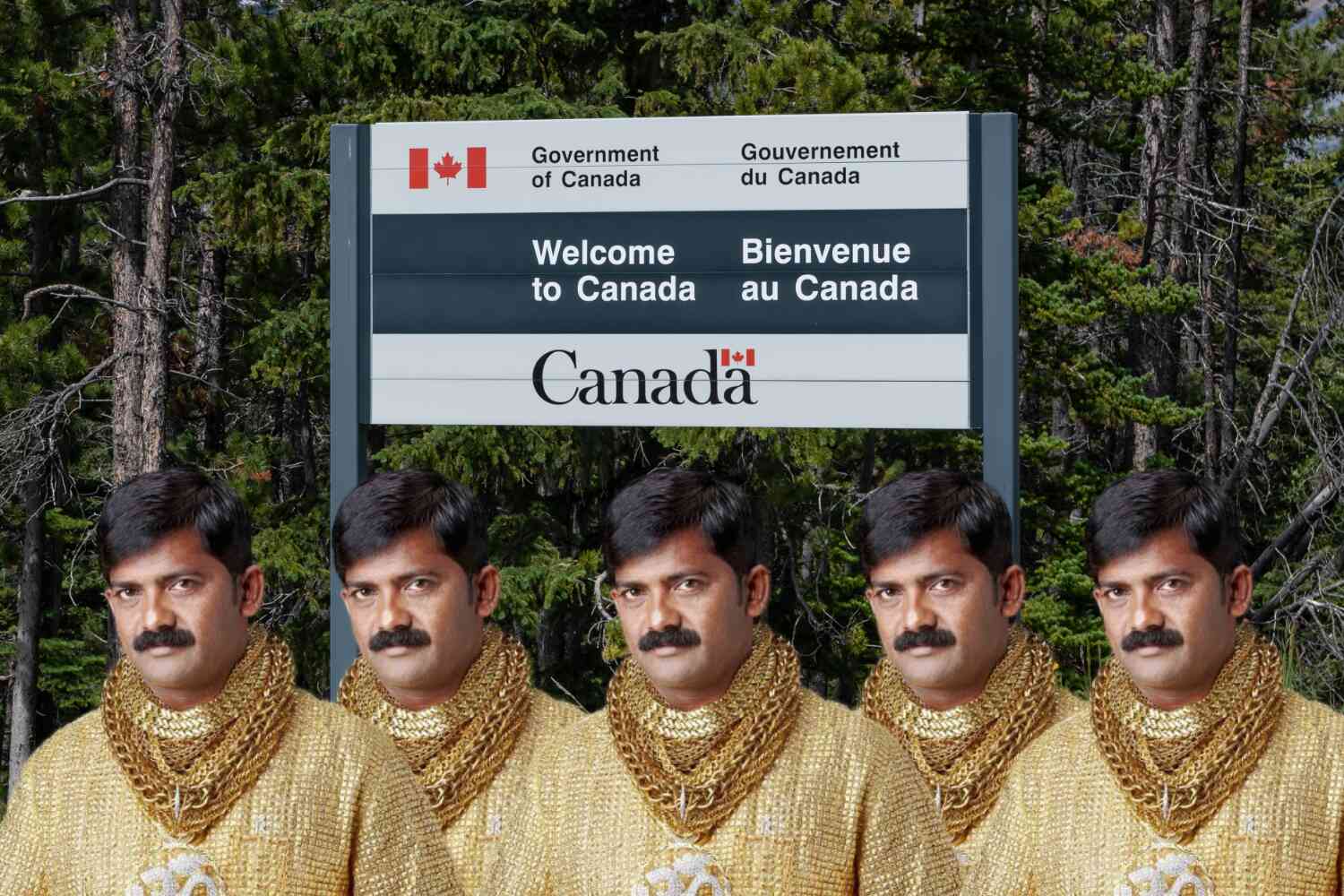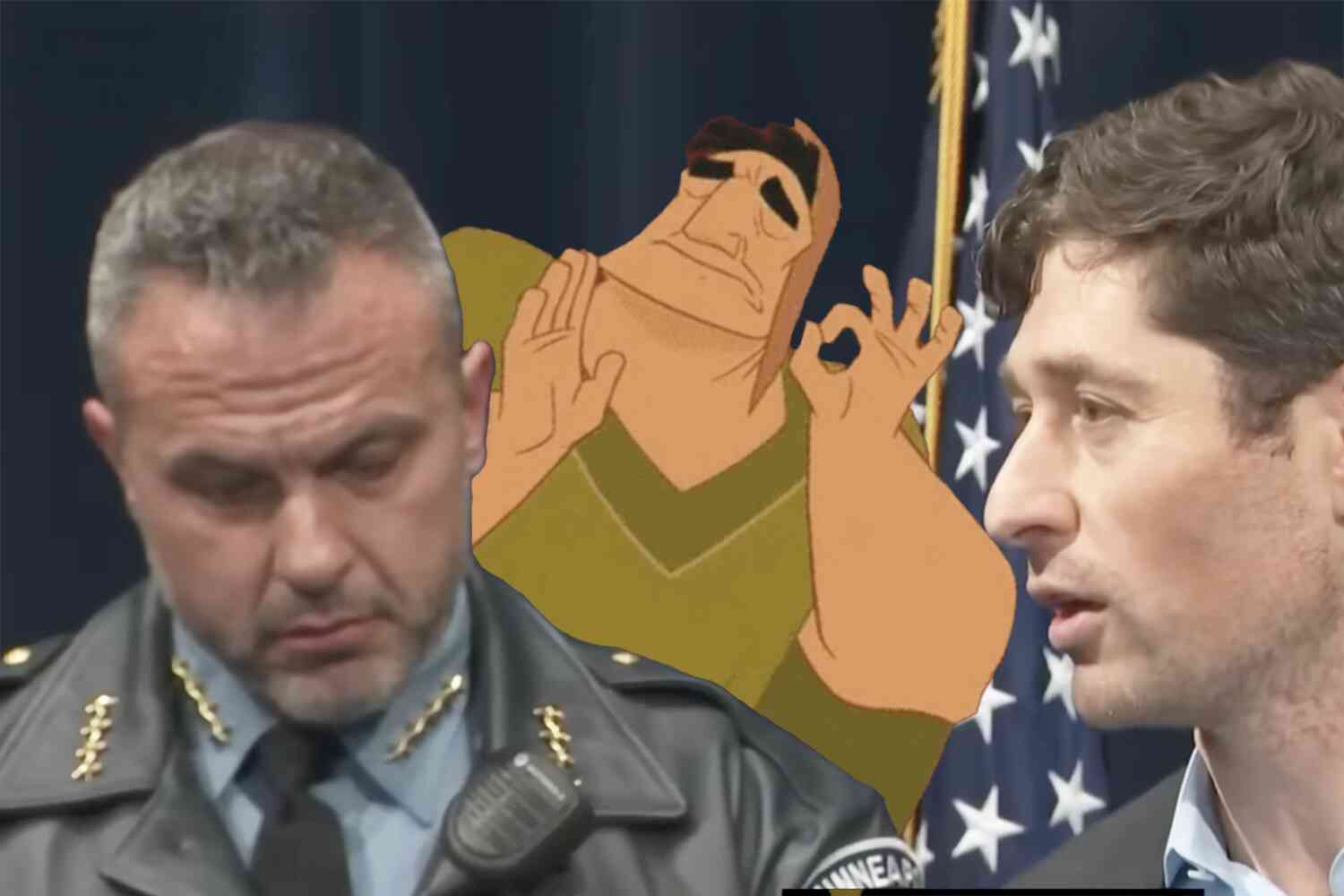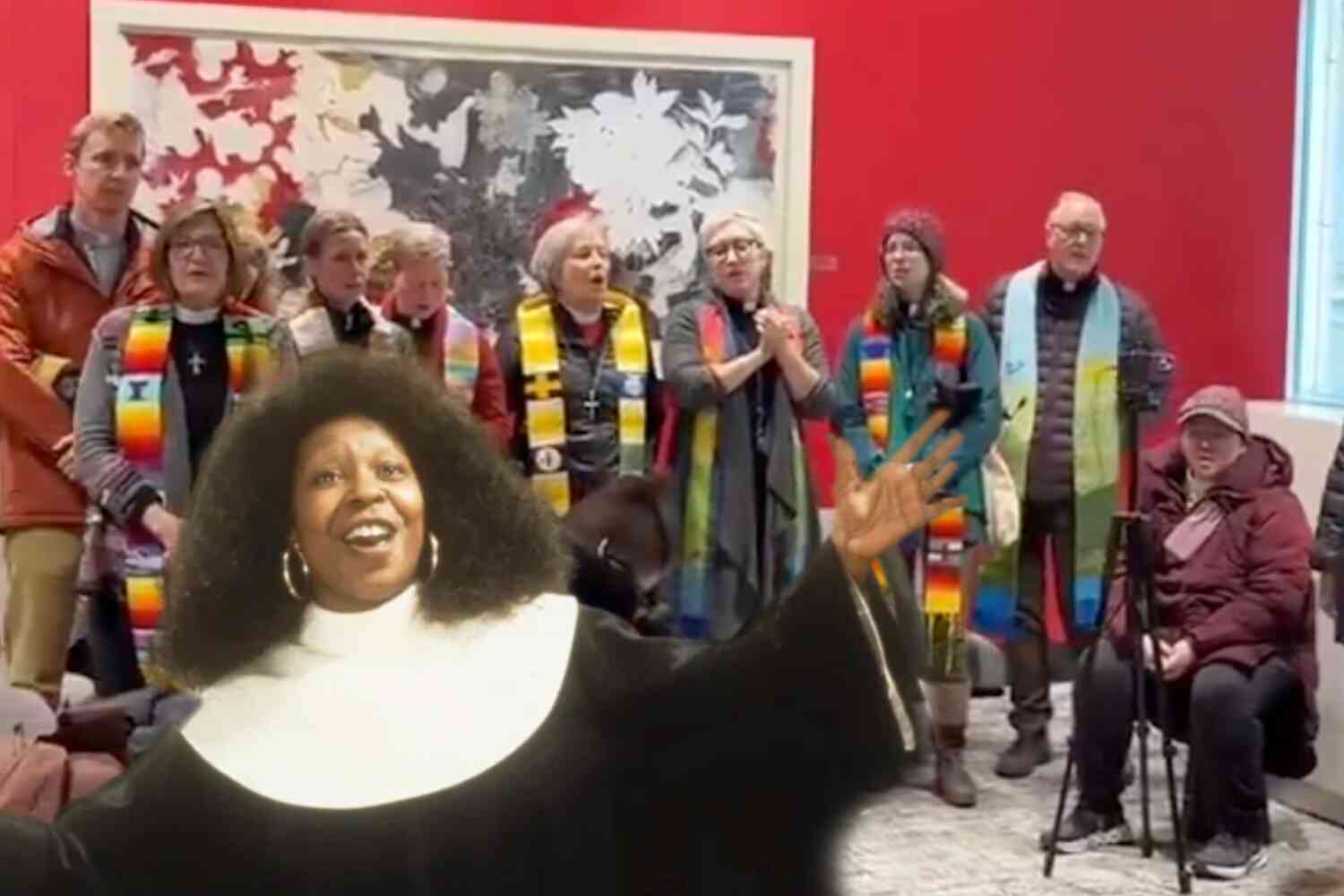It's the most expensive show of all time. Amazon spent $715 million in producing its first, 8-episode season of The Rings of Power, a prequel Lord of the Rings tale based on supplementary material from J.R.R. Tolkien.
And now, after the season finale last night, the three-quarters-of-a-billion-dollar question must be asked: Is it any good?
The answer: No. It's quite bad. Exceptionally bad.
It should be noted that Amazon clearly got wind of the growing negative reaction to its show because the company has been in full damage control mode for the past several weeks. They've sent showrunners Patrick McKay and J.D. Payne out to do softball interviews with The Hollywood Reporter while running a censorship campaign against negative reviews, smearing detractors as "patently evil" "fascist-adjacent" bigots.
The narrative, we have been told, is that Amazon's The Rings Of Power is a high-quality addition to the Tolkien catalogue — one that is faithful to the true spirit of Tolkien — but that it ended up getting "review-bombed" by anonymous online trolls who hate the show's racially diverse cast. We've been led to believe, in other words, that the show is an unfortunate casualty of the culture wars.
This is false. The show is just not good. That's all.
Have any of the showrunners actually read Tolkien?
I love Tolkien. I love the world he created and its inhabitants. C.S. Lewis wrote in his review of The Hobbit that the novel "admits us to a world of its own — a world that seems to have been going on long before we stumbled into it but which, once found by the right reader, becomes indispensable to him"
"All the inhabitants of Wilderland," Lewis wrote, "seem to have the same unquestionable right to their existence as those of our own world."
To read Tolkien is to become immersed in a foreign land that really does feel "lived in." Tolkien created the defining epic fantasy story of the 20th century, one containing entire languages that he invented himself — all in an effort to give England its first sort of cultural epic. The man was brilliant.
Was anything Amazon made going to live up to that brilliance? Of course not. As great as his Lord of the Rings adaptations were, not even Peter Jackson could live up to Tolkien. However, Amazon in its latest work has proven itself almost comically ill-suited to the task.
Amazon Studios TV co-head Vernon Sanders claimed that Amazon won the rights to the show due to their "collective passion and fidelity to Tolkien." But is that true? Do we see a "passion and fidelity to Tolkien" on display when the showrunners completely invent, out of whole cloth, new lore the likes of which Tolkien himself never authored?
Chief among these fabrications is the bizarre plot point that the elves in Middle-earth are dying from some kind of plague sickness brought on by their lack of exposure to the light of Valinor. In this telling, elves are like Teslas that need to be plugged back into a power source in order to recharge.
This power source, in Amazon's telling, is Mithril — the mythical metal that is as light as a feather and as hard as dragon scales. Viewers will remember that Frodo Baggins wore Mithril for armor in The Lord of The Rings. Amazon has reimagined this substance to be part of some incomprehensible lore involving a battle between an elf and a Balrog demon, one in which lightning strikes a tree containing an ancient elven jewel that led to the creation of — you know what, nevermind. Does any of it make any sense? No. No it does not.
It is not at all clear how exactly this new interpretation of Mithril functions. Tolkien could not tell you, because he didn't write any of this garbage. Relative to the author's official canon, this is all wholly and terribly made up.
Years ago, the literary critic Roland Barthes developed the "death of the author" school of criticism, one that seeks to ignore the original intentions of an author's work in favor of completely subjective interpretations by the reader. This show has come as close to embracing that philosophy as anything I have ever seen in a major intellectual property. Perhaps they believe that they are in keeping with the spirit of the author's themes (at least as they understand them), even if not keeping to a strict reading of what Tolkien actually wrote about the events of the Second Age. But that's still probably giving them too much credit.
The Middle-earth Ministry of Diversity, Equity, and Inclusion
And here's the heart of where the series' writers have missed the boat. Amazon's showrunners seem to really believe Tolkien was primarily about diversity, equity, and inclusion as the way to overcome evil. Yet even if we grant that a vague sort of unity-amidst-differences theme is present in Tolkien's The Lord of the Rings, there is a glaring issue in stretching that minor theme backwards in time.
Within Tolkien's canon, Middle-earth's First Age is primarily about the original sin and arrogance of the elves, while the Second Age is primarily about the corruption and downfall of men. Perhaps, if Amazon's showrunners could be reasoned with, they would surely see how depicting nonwhite elves, dwarves, and hobbits was not in the top ten list of themes Tolkien was concerned about in writing what he wrote about the Second Age. Amazon in creating this alternative world is instead being driven by its own heavily modernized sensibilities.
Can people who hate beauty make a show about something beautiful?
In that same vein, one of the primary frustrations I have with the show is the injecting of Tolkien's world with the modern sensibility of morality being in shades of gray rather than in stark black-and-white terms, as Tolkien preferred to present it.
From the very beginning of the show you have the great elven leader Galadriel learning a kind of lame moral relativism from her older brother: "Sometimes you have to touch the darkness to know the light."
Almost every episode seems to have its own stupid, convoluted catchphrase like this to look out for — nonsensical cringe axioms that would make Tolkien the scholar and philologist weep for the English language: "We will sweep them like salt from the table." (Wow, that's some pretty severe sweeping.) "The sea is always right." (Mmm. So true.) "Where there is love, it is never truly dark." (OK.) "The wine of victory is sweetest for those in whose bitter trials it has fermented."( Ah, yes, the bitter… wait, what?)
This muddled morality is on full display during the sequence in which Galadriel is interrogating the villain, Adar. Notice, in the screenshot above, that the filmmakers use a "dutch angle" to depict that something is off. They leveled the playing field here. We see this as Galadriel proceeds to threaten torture and genocide upon all of Adar's orcs. He is quick to correct her. We identify as Uruks, Karen. All Adar is doing, you see, is trying to make a home for his dispossessed Uruks and forge a brotherhood. He is so misunderstood.
I'm not saying the showrunners are trying to depict good as evil and evil as good, but rather they have decided to not depict pure good at all. This is somewhat similar to what Peter Jackson did with the characters of Faramir and Aragorn. To many filmmakers, pure goodness is too boring. They feel the need instead for conflicted characters with profound moral failings that we can relate to.
In that vein, the elves in this show are schemers and manipulators of even their own kind — convincing Elrond, for example, to help send Galadriel away, and elsewhere convincing the dwarves to give them Mithricillin. The low men in this show are nearly universally depicted as bigots who don't listen to women and who call black elves nasty things like "you people" and "knife ears."
Perhaps most unlikeable of all are the dirty sociopathic nomads with salad in their hair, the Harfoots — who Tolkien said were Hobbits, but who Amazon pretends are Neanderthal-like Hobbits. These characters seem eager to kill their own at the slightest provocation. The less said about them the better. Their subplot has added nothing to the show for eight episodes except to provide viewers with a useless off-brand type of Hobbit.
Rings of Power, by any other name…
As much as it pains this nerdy Tolkien fan, let's set aside for a moment the show's infidelity to the author's beloved world and works. Let's forget briefly that low ominous hum emanating from a cemetery in Oxford, where Tolkien's corpse is currently spinning ever-faster in his grave.
Is the show good on its own terms? Is it a workable plotline with interesting characters? Does it have the basics of good storytelling and narrative? Perhaps, after all, it can just be a good fantasy show with some Tolkien names loosely affixed, and maybe that's good enough for the masses.
The answer: No. It is absolutely not a good show.
The storytelling is amateur, the characters are one dimensional and flat, and the several disjointed subplots crawl along for most of the season. One Amazon analyst reportedly couldn't stay awake through the slow, plodding pace of these episodes.
One almost gets the feeling that the writers had a sketch for the show's planned five seasons and that they carefully plotted out what moments would define each season. For example, in Season One we need to have Mordor created, the Númenóreans brought to Middle-earth, and all these characters need to be together by episode eight. They then proceed to pad out eight episodes with unnecessary fillers, like any scene with the Harfoots and honestly most other scenes before episode six or seven.
The creators could have easily just hit the ground running and thrown viewers into the middle of the action, filling things in as they went. But, no, you must sit through about six hours of the show before anything really happens to move the primary plot forward.
These are just not well-written episodes like you might find in superior shows like Breaking Bad, or, let's face it, even something more Marvelized like The Mandalorian, where characters and their motivations are revealed through their responses to different scenarios. In these superior stories, stakes are continually raised by a storm of events sweeping up the characters into something outside their control, each scene being vital to our understanding of the world and the individual character arcs.
In Rings of Power, by contrast, instead of epic Second Age events we get episode after episode unveiling storylines like a Harfoot — who even cares to know their names? — twisting his ankle and possibly being left behind by the other heartless Harfoots. Or Encino-wizard-man emerging from a meteor and stumbling around worried about whether he is good and trying to remember how to talk. Or Halbrand running from his past wanting desperately to become a blacksmith but finding himself falling into old habits of pickpocketing like some Dungeons & Dragons rogue and getting into a bar fight instead.
Middle-Earth: Pocket-sized edition!
Another significant problem with the show is that the writers apparently think we are dumb. Or they just don't care about their giant plot holes and inconsistencies. For example, characters frequently "fast travel" everywhere even if the two locations are leagues apart. At one point a scene is depicted as if a group of characters just casually strolled from the elven capital of Lindon to the Mines of Moria even as those locations are about 100 miles apart.
Elsewhere, two groups of characters apparently see a sunrise at the same time in spite of being days apart from each other. And at one point in the Dwarves/Elves subplot, the dwarves agree to build a forge for the elves and, in the very next scene, we see a months-long project already half-built. In Rings of Power, Middle-earth feels like a shopping mall food court where you can just hop over to Moria or Sbarro Pizza whenever you feel like.
Tolkien, by contrast, made meticulous notes throughout The Lord of the Rings referencing common points of time. After the Fellowship is split up, Tolkien notes the phases of the moon to track how much time has passed, and then makes it a point to connect the different subplots in time. For example, in The Two Towers, Frodo and Sam are at the Black Gate being convinced by Gollum to try for Cirith Ungol when we are told that at that moment had Gandalf been there he would have told them the danger of that path but he "stood amid the ruin of Isengard and strove with Saruman, delayed by treason."
Similarly, at the sunset hour at the Siege of Gondor, Tolkien tells us that Frodo sees the same sunset gleam seen to the west of Minas Tirith also "touching the head of the fallen king" when he reaches the Cross-roads.
One especially egregious time problem in The Rings of Power occurs when the characters across all the subplots witness the same meteor streak across the sky in a single moment in time. So when the creators subsequently collapse time and distance, speeding certain things up and slowing other things down, they make Middle-earth arbitrary and destroy any believability in the story they are trying to tell. There is little immersion when very little makes sense. Why bother showing us where things are on the famous map of Middle-earth when it clearly does not matter?
Other things that break immersion:
- The elvish watchtowers in the Southlands not seeing Adar and the orcs digging a wide open air trench with miles of devastation all around it leading all the way back to Mt. Doom;
- Galadriel jumping off a boat in the middle of thousands of miles of ocean with her only plan being to swim back to the shore;
- The entire Númenórean expedition force of approximately 150 or so mounted cavalry all arriving together on three small boats.
We are also told to believe that every major character survives an exploding volcano while the buildings all around them get pulverized by the pyroclastic flow. These are all symptoms of the underlying rot of this show: bad writing.
It would be possible to take a contrarian position on all of this criticism: "It's just fantasy! You are being too critical, ya big old nerd!" But this is where Amazon contradicts its fans. Showrunner J.D. Payne emphasized for the record that their show would be "Braveheart, not Narnia — you want it real and lived in." All of these contradictions, plot holes, and time compressions will shake a viewer out of being immersed in Middle-earth multiple times per episode. The net effect? For the moments that you do manage to power through, you are given a few nice looking shots of Tolkien's lore being completely disregarded.
A billion-dollar disaster
The big reveals in the final episode are entirely predictable to anyone who has been paying attention. Sauron's identity is realized after he helps the elves make some rings; when he is exposed as Sauron he flees. Yet this breaks Tolkien's lore yet again: According to Tolkien, Sauron helped make the rings for men and for dwarves, while forging another ring in secret to rule them all. Then the Elven rings are crafted in secret to thwart the dark lord's plans. Amazon's writers seem to have entirely forgotten this and written it backwards.
To rub salt in the wound, someone nonsensically and mournfully sings the following poem at the end credits:
Three Rings for the Elven-kings / under the sky, / Seven for the Dwarf-lords / in their halls of stone,/ Nine for Mortal Men / doomed to die / One for the Dark Lord on his dark throne / In the Land of Mordor where the Shadows lie.
Why are we listening to a song about rings that haven't been created yet? How would a viewer learning about the creation of the Rings of Power even know about these rings?
This is not fidelity to Tolkien. This is not excellence that should have Tolkien's name associated with it. Amazon in creating this product effectively sidelined Tolkien — and for what? After one season, it is clear that Amazon's writers have no idea what they are doing. They have taken up their very own ring of power, thinking that they know best how to wield it in creating their own story. If they truly had a passion for and fidelity to Tolkien they would have known their folly in trying to collapse the entire Second Age into a single point in time.
Just because you have the power to do something doesn't mean you should. If you want Middle-earth, fire up some pipeweed and go back to Tolkien's works.









